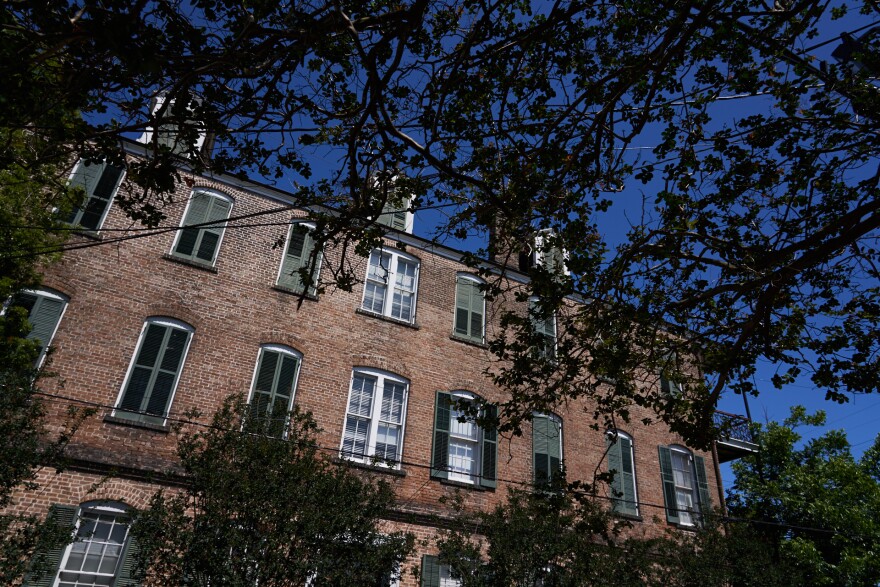Steven is an addict. He has been off of drugs for six years now, and says he maintains his sobriety by regularly attending a Narcotics Anonymous support group.
The meetings open with the serenity prayer: God, grant me the serenity to accept the things I cannot change, the courage to change the things that I can, and the wisdom to know the difference.
And then, sitting in a circle, recovering addicts tell their life stories and develop an intimate bond while only identifying themselves on a first name basis.
But the NA meetups Steven went to were suspended because of the coronavirus.
“The manner in which we have to deal with the COVID-19 outbreak is counterintuitive to the core tools that we use to stay clean, which is face-to-face meetings where we share our experience, strength and hope with each other,” he said.
For Steven, recovery is a daily battle. Added anxiety and social isolation during the pandemic could trigger a relapse. So he and other NA leaders moved their meetings online.
“We’re not all tech-savvy. I’m not tech-savvy. But we’re doing a really good job of trying to stay connected and help each other through this,” Stephen said.
For years, fatal drug use has been on the rise in New Orleans, and it now tops homicide as the city’s No. 1 cause of unnatural death.
Dr. Joseph Kanter has been leading the charge against the opioid crisis, first as the city’s director of health and now as the assistant state health officer. He said the coronavirus is disrupting efforts to combat the drug epidemic at a time when addiction is likely to surge.
“There’s a lot of trauma, psychological distress, families are experiencing economic despair, people are out of jobs. Times are getting really tough. That can be an underlying factor that exacerbates addictive disorders or incites them,” Kanter said.
According to New Orleans Emergency Medical Services, paramedics have administered Narcan, the medicine that reverses opioid overdoses, about 90 times in 2020. That’s comparable to this time last year.
But health experts are alarmed that the number has not increased. They fear that drug users are overdosing alone and don’t have anyone around to call for life-saving interventions.
It takes months for coroner’s offices to report fatal overdoses. The number is expected to rise during the pandemic because people are not getting the help they need. That’s according Dr. Benjamin Springgate, chief of community and population medicine at the Louisiana State University Healthcare Network.
“There are far fewer people coming in, which suggests that they’re not getting their treatment. And if they’re not getting their treatment, then they’re going back to using heroin and other sources of opiates, and that’s dangerous and can increase the likelihood of overdose and death,” Springgate said.
It’s also harder to get treatment now because many rehab programs and clinics have shut down or limited the number of people allowed inside.

Odyssey House, Louisiana’s largest addiction treatment provider, has kept its doors open throughout the lockdown. But Prevention Department Manager Helena Likaj said they’re having a hard time reaching people.
“We used to go out every single day in our mobile unit that we would drive through the community. And we would walk up to individuals and tell them who we are and what we have to offer. Now we can’t do that,” Likaj said.
Personal interactions are important for building trust, Likaj said. But treatment can and must overcome the challenges posed by the pandemic.
Odyssey House is now offering telehealth visits for patients who can’t come in. It founded the state’s first drug treatment program for people who test positive for COVID-19. And it recently purchased new computers to connect residents with online support communities like Narcotics Anonymous.
“It’s been very challenging because we want to do our part enforcing social distancing but we also recognize the needs of the community are definitely higher at this time,” Likaj said.
Steven from Narcotics Anonymous has been seeing lots of newcomers at the online meetings. He said people with addiction disorders do face additional challenges during the pandemic. But in some ways, they may be better equipped than others to deal with the health crisis.
It goes back to that serenity prayer, and facing uncertainty, he explained. For recovering addicts, every day is a struggle for survival. And now that feels true for everyone.
People experiencing mental health issues or addictive disorders can call the Louisiana Department of Health’s helpline at 1-866-310-7977. A full listing of Narcotics Anonymous meetings and resources is available on their website nonoa.org.




